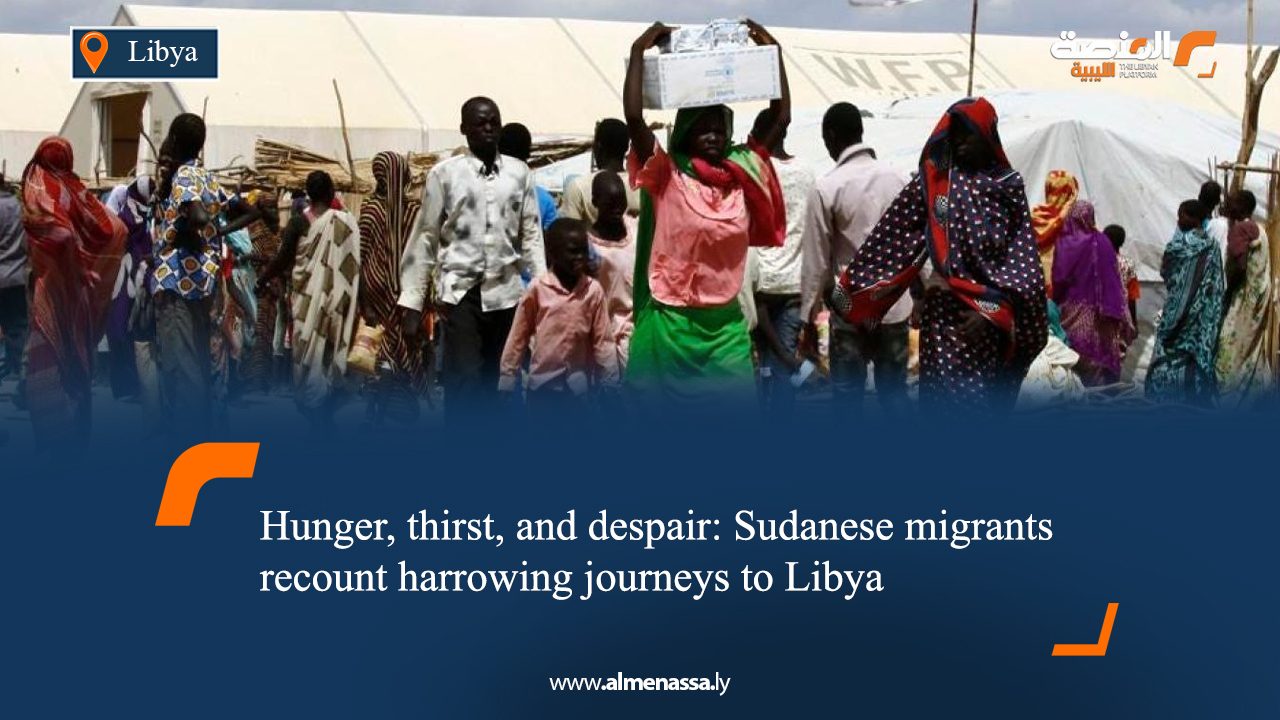Driven by war and desperation, Sudanese migrants fleeing conflict zones have found the path to Libya more brutal than the violence they left behind. Their stories, collected by AFP, reveal a grim reality of exploitation, suffering, and shattered hopes.
A $3,000 escape into uncertainty
Ibrahim Yassin, 20, left Kassala in eastern Sudan in December 2023, hoping to reach Europe via Libya. “The desert crossing was hell,” he said. “Days without food, unbearable thirst.” Upon arrival, smugglers demanded $3,000 to continue the journey. Unable to pay, he fled alone to Tripoli, only to be asked for $3,500 more to cross the Mediterranean. His family sold their home to send the money.
“We sailed for eight hours before Libyan coastguards arrested us,” he said. After paying $1,000, he was released, but a second attempt ended in another arrest. Now stranded in Tripoli, he has no documents, no money, and no way forward. “I’m lost between smuggling mafias. No safety, no papers, no return to Sudan, no arrival in Europe. My fate is unknown.”
Naima’s journey: war, flight, and disappointment
Naima Azhari, 35, fled with her husband and daughter from Soba, southwest of Khartoum, after war erupted in April 2023. “We thought it would last a week or two,” she said. But as Rapid Support Forces took control of the capital, hope faded.
In August, they headed to Libya seeking stability. “The journey was exhausting. At every checkpoint, we paid bribes or faced threats.” After ten perilous days, they reached Tripoli only to find conditions worse than the war they escaped. “No jobs, no stability. Life in Libya felt harder than war.” In October 2024, they moved to Egypt, where they finally found relief.
From genocide to exile: Hassan’s escape to Europe
Hassan Adam, 40, a civil servant from El Geneina in West Darfur, fled after witnessing massacres targeting his Masalit tribe. The U.S. has labeled the killings, estimated at 10,000 to 15,000 deaths, as genocide.
“I was close to Governor Khamees Abakar, who was assassinated,” Hassan said. “We condemned the crime and were arrested, beaten, and tortured. They told us, ‘You slaves must be eliminated.’”
He escaped through the desert to Libya, where he was detained in a notorious holding site known as “the tarkeena,” a cramped space where migrants face abuse and exploitation. After two months, he boarded a small boat to Italy, then traveled to France to seek asylum. He now works in a factory and is trying to locate his children, believed to be in a refugee camp in Chad. “I can’t return to Sudan. Bringing them here is my only goal.”
“We may die in the desert”: Abdulaziz’s last hope
Abdulaziz Bashir, 42, once lived a modest but stable life in Omdurman. When war broke out, he fled with his family to Gedaref in eastern Sudan. Though safe, he found no work and watched the economy collapse.
With hunger rising and no means to support his family, he sees migration as the only option. “I know the risks, we could die in the desert or drown at sea. But honestly, there’s no other choice. Migration is our only hope


